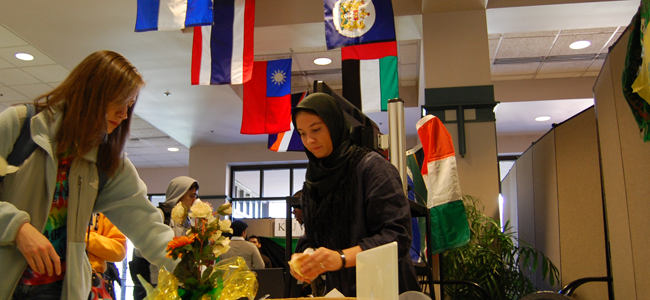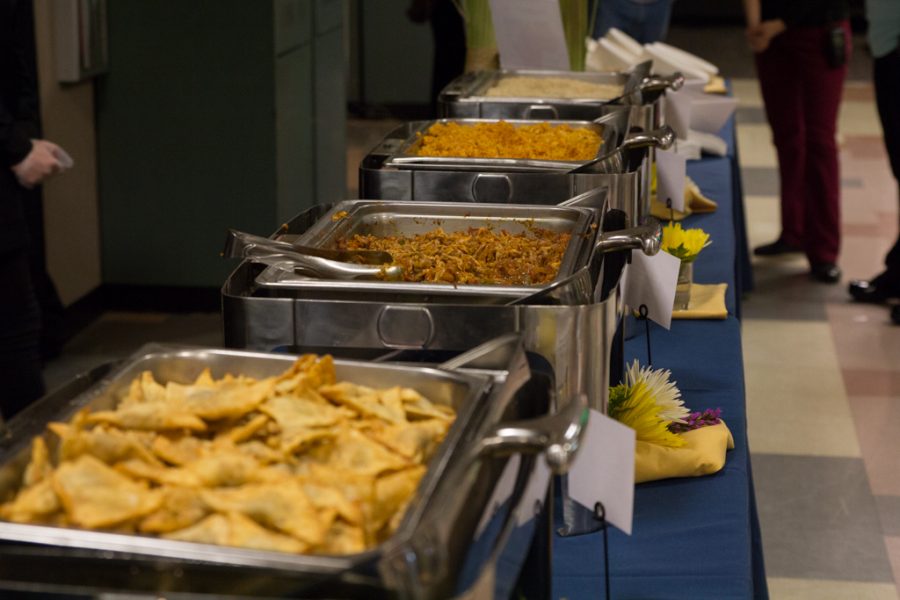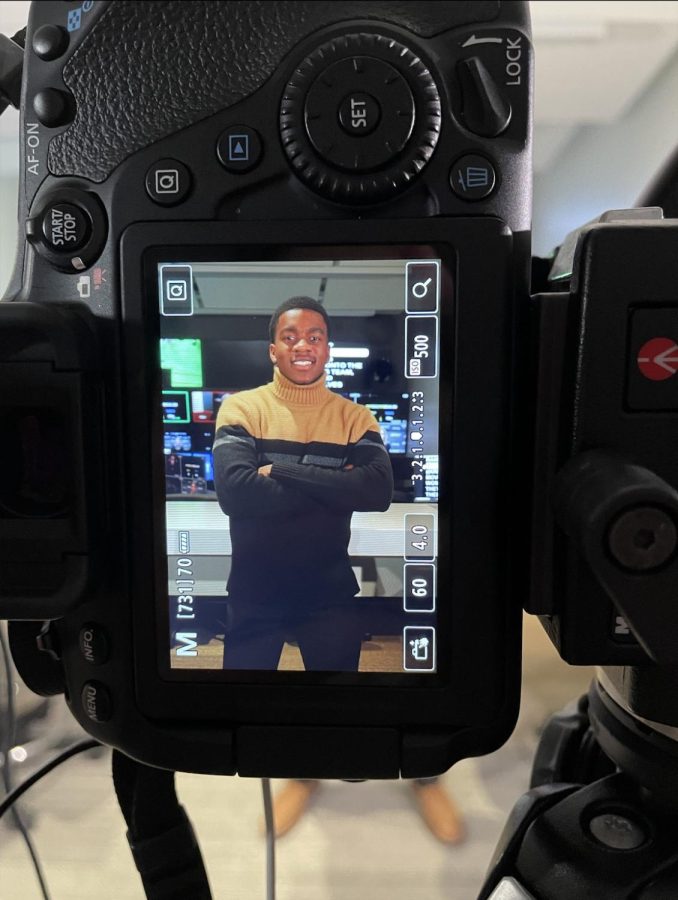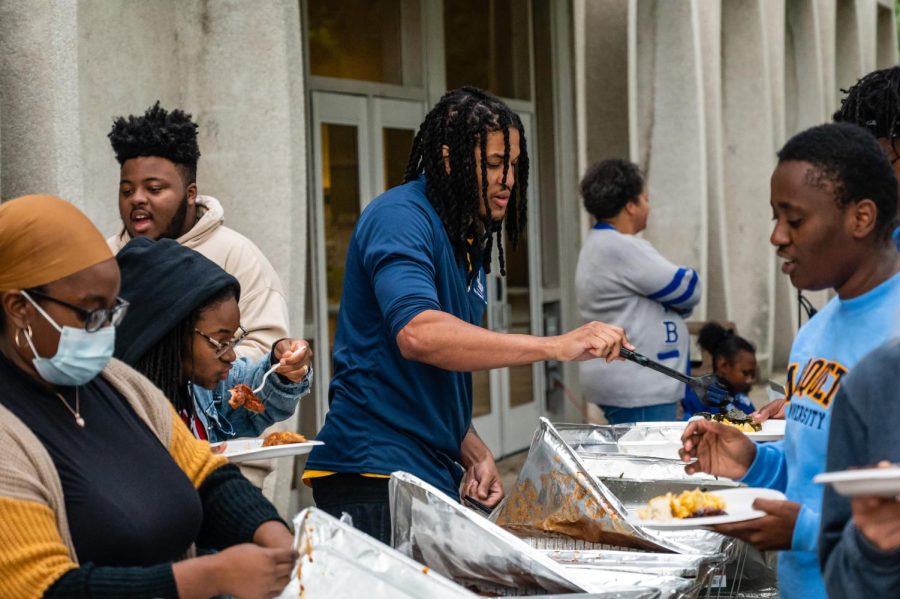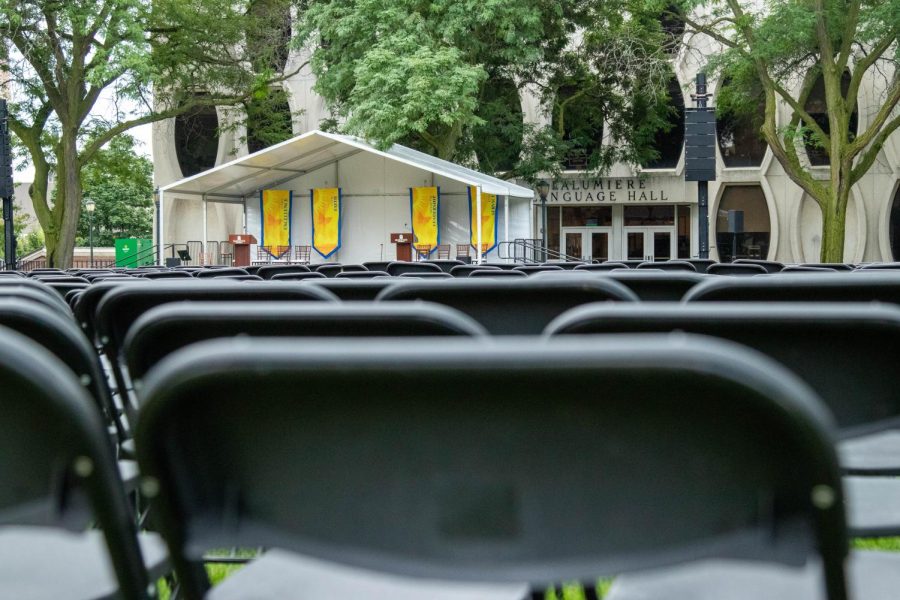The Multicultural Student Council, a new organization created this year, is bringing together the voices of cultural organization leaders to promote a more inclusive campus community.
One or two representatives from each cultural organization are members of the council, providing a communication channel between various organizations.
“(The Multicultural Student Council) is composed of over 20 multicultural and diverse student organizations on campus, and we work to promote social justice and also to advocate for the different marginalized communities, not just at Marquette University, but also what’s happening at the national level,” said Eva Martinez Powless, director of Intercultural Engagement.
The Center for Intercultural Engagement supports and advises the cultural organizations, which provide a way for students from various cultural backgrounds to connect with other students. The CIE is working directly with the Multicultural Student Council, Martinez Powless said.
The council meets every first Tuesday of the month at 8 p.m., where they discuss plans and decide which cultural organizations need financial help for events.
DeJuan Washington, a graduate assistant at the Center for Intercultural Engagement and advisor of the Multicultural Student Council, said the council aims to promote collaboration between organizations, unite students of color and bridge the gap between students and faculty.
The Multicultural Student Council started as an idea last year because the office saw there were a lot of similar events, but no one was collaborating.
Students and staff realized it could be beneficial to get representatives from different organizations in one room to talk about ideas, what they’re doing as individual groups, what the department is doing and where there are opportunities for collaboration, Washington said.
He adds he hopes the new council allows students to find allies from different cultural backgrounds.
“Sometimes, as students of color, you can be focused so much on what your identity is going through,” Washington said. “What the council does is that it exposes us to each other’s struggles and each other’s marginalizations and understanding that our struggles may be different, but we’re not in this alone.”
The council was involved in this year’s Homecoming Week planning, and will continue to be involved in planning campus events and next year’s Homecoming festivities.
“Moving forward, I will be part of the Homecoming Committee, along with some of the other multicultural student leaders, because we are all Marquette University,” Martinez Powless said. “Serving as part of the Homecoming Committee for next year is going to be key because our office works directly with the Multicultural Student Council.”
Some students in cultural organizations hope the council will address some of their Homecoming Week concerns.
“I hope (the council) provides more insight into what students are hoping for in their Homecoming experience,” Claire Assana, president of the African Students Association and junior in the College of Arts & Sciences, said. “I think having representatives in one council perhaps will make it easier for the university to hear what students want.”
Elijah Ikhumhen, a student leader in the Multicultural Student Council and member of the Homecoming Committee who is a senior in the College of Health Sciences, said last year he came up with an idea for a Multicultural Student Showcase during Homecoming Week, but upon returning this year, the council decided against it.
“We noticed a lack of inclusiveness in the planning of Homecoming,” Ikhumhen said.
Jasmin Young, president of Black Student Council and senior in the College of Arts & Sciences, said she is concerned about the university’s choice of performers for the Rock the Mall Concert. She said her organization sent letters to the administration about Homecoming inclusivity, but received no response.
Her concerns were echoed by Anji Patel, vice president of the Indian Student Association and junior in the College of Communication.
“For the past few years, it’s just been predominantly white artists. … I understand they don’t want profanity in it, but there’s so many other artists that could’ve done it and been a good example for the Jesuit standards,” Patel said.
Martinez Powless said there will be more multicultural representation on the Homecoming Committee in the future, with members of the Multicultural Student Council serving on the committee.
Washington said he hopes the Multicultural Student Council can continue addressing student concerns. He said planning for next year’s Homecoming starts next month.
“We say, ‘We Are Marquette,’ but what is the ‘we’? Who are the ‘we’ if everybody doesn’t feel part of the ‘we’? … I think all identities should be represented within the ‘we,’ so keeping inclusion at the center (of Homecoming planning) is very key,” Washington said.
Washington also said students’ concerns should be at the forefront of the university’s agenda.
“You cannot have a university without students. You can’t have senior-level administration at a college without students,” he said. “At the center of what we do, it needs to be student-first. Sometimes in higher education, we can get away from that, and I think the Multicultural Student Council is here to remind everyone that students must remain at the center of everything that we do.”

